January 3, 2018
Flexible space and smart tech to grow this year, while occupiers decide on Brexit
 The proportion of flexible space within occupier portfolios will continue to increase in 2018; a growing adoption of technology will redefine buildings, workplaces and portfolios; and it will be a year of decision for many businesses regarding Brexit. These are among the ‘UK Property Predictions 2018’ report from JLL which covers a range of different topics, with a particular focus on UK corporate occupiers. The report claims that traditional static portfolio concepts are being redesigned to incorporate new formats of space, co-working and a more fluid and diverse range of space options that support creativity, innovation and collaboration. More →
The proportion of flexible space within occupier portfolios will continue to increase in 2018; a growing adoption of technology will redefine buildings, workplaces and portfolios; and it will be a year of decision for many businesses regarding Brexit. These are among the ‘UK Property Predictions 2018’ report from JLL which covers a range of different topics, with a particular focus on UK corporate occupiers. The report claims that traditional static portfolio concepts are being redesigned to incorporate new formats of space, co-working and a more fluid and diverse range of space options that support creativity, innovation and collaboration. More →





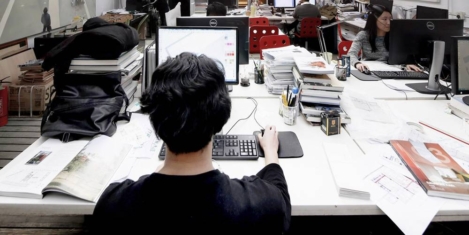
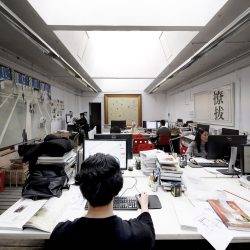
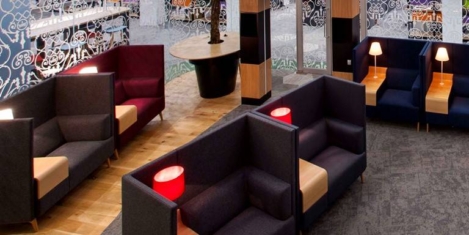
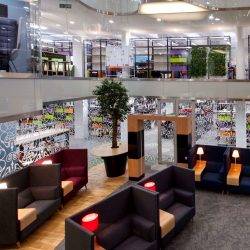






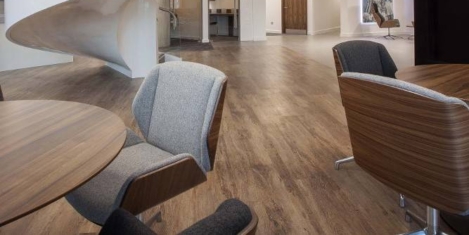

 Impostor syndrome (where we feel like we are ‘faking it’ at the job we are doing) could be holding back many senior executives from realising their potential – according to new research from Dropbox on the state of teamwork within businesses in the UK. The research, which marks the launch of a new study, conducted in conjunction with philosophers at The School of Life reveals that 80 percent of Chief Executive Officers (CEOs) and 81 percent of Managing Directors say they sometimes feel ‘out of their depth’ and as if they are ‘struggling’ in their role. The research investigates behaviours in business that are limiting to great teamwork. Being averse to disagreeing with others – often seen as a typically British trait – is identified as a key issue holding back teams within British business. The data also claims that two thirds of British workers (69 percent) say that they aren’t comfortable disagreeing with others at work.
Impostor syndrome (where we feel like we are ‘faking it’ at the job we are doing) could be holding back many senior executives from realising their potential – according to new research from Dropbox on the state of teamwork within businesses in the UK. The research, which marks the launch of a new study, conducted in conjunction with philosophers at The School of Life reveals that 80 percent of Chief Executive Officers (CEOs) and 81 percent of Managing Directors say they sometimes feel ‘out of their depth’ and as if they are ‘struggling’ in their role. The research investigates behaviours in business that are limiting to great teamwork. Being averse to disagreeing with others – often seen as a typically British trait – is identified as a key issue holding back teams within British business. The data also claims that two thirds of British workers (69 percent) say that they aren’t comfortable disagreeing with others at work.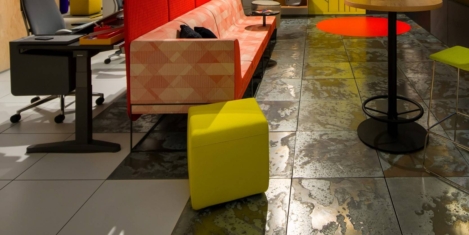
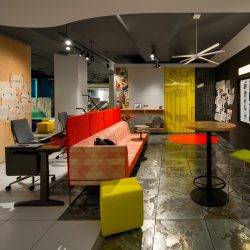

 Despite recent figures indicating that work productivity is down in Britain, the UK remains a highly attractive country for employers and employees based on a combination of talent, location, quality of life and cost, according to the latest edition of Colliers International’s European Cities of Influence report. The analysis of 50 major European economic cities for employers saw London retain its top position, with all other UK cities in the analysis featuring in the top 20 (Birmingham, Edinburgh, Manchester, Bristol and Glasgow).The report finds that quality of life factors are important to accelerate business and attract talent with the research revealing that the nature of workplace strategy is evolving so rapidly that keeping up — let alone staying ahead of the curve — can be a challenge. Employers are now focused on creating a workplace that can attract and retain talent by incorporating co-working and collaborative facilities, flexible working options and ingraining a healthy mindset. With the onus on keeping employees happy and productive, the design and utilization of the workplace is helping to accelerate business productivity more than ever before.
Despite recent figures indicating that work productivity is down in Britain, the UK remains a highly attractive country for employers and employees based on a combination of talent, location, quality of life and cost, according to the latest edition of Colliers International’s European Cities of Influence report. The analysis of 50 major European economic cities for employers saw London retain its top position, with all other UK cities in the analysis featuring in the top 20 (Birmingham, Edinburgh, Manchester, Bristol and Glasgow).The report finds that quality of life factors are important to accelerate business and attract talent with the research revealing that the nature of workplace strategy is evolving so rapidly that keeping up — let alone staying ahead of the curve — can be a challenge. Employers are now focused on creating a workplace that can attract and retain talent by incorporating co-working and collaborative facilities, flexible working options and ingraining a healthy mindset. With the onus on keeping employees happy and productive, the design and utilization of the workplace is helping to accelerate business productivity more than ever before.











December 13, 2017
The ups and downs of wearables for workplace health and wellbeing
by Lee Sadd • AI, Comment, Technology
More →